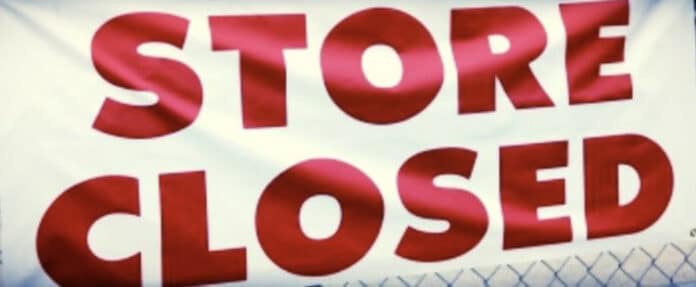Today the fate of thousands of small businesses hangs in the balance; millions face an uncertain future; youth unemployment is already at record levels – all concerns that a forward-looking government should be dealing with today but aren’t.
Retail sales suffered their worst December slump on record last month as the Omicron variant was blamed for keeping shoppers away.
The 3.7% month-on-month decline in sales volumes reported by the Office for National Statistics (ONS) follows a strong November, when some consumers chose to make Christmas purchases early.
A fall in demand for petrol and diesel, due to more people working from home under Plan B rules, also contributed to the slump.
It was significantly worse than the 0.6% drop that had been pencilled in by forecasters and was the biggest December decline on records going back to 1996.
The fall was also the worst for any month since last January when Britain was coming under a tough new lockdown.
It highlighted the pressure on businesses created by the Omicron variant – and restrictions designed to tackle its spread – over the key festive season.
They will be now hoping for a boost as the Plan B rules are lifted – though separate figures published on Friday by GfK show a sharp drop in consumer confidence blamed on the surge in the cost of living.
The ONS data showed that in December, retail sales even failed to match last year’s COVID-hit festive period, charting a 0.9% year-on-year decline.
Heather Bovill, ONS deputy director for surveys and economic indicators, said: “After strong pre-Christmas trading in November, retail sales fell across the board in December, with feedback from retailers suggesting Omicron impacted on footfall.”
The figures showed that fashion stores saw an 8% decline and department stores dropped 6.3%, while food store volumes were off by 1%.
Online sales were slightly higher as a proportion of the total, at 26.6%, than they were in November, at 26.3%, according to the ONS.
For 2021 as a whole, retail sales were up by 5.1% – a level of growth that has not been higher since 2002.
However that follows a 1.8% decline in 2020 when the pandemic took hold. Compared with 2019, annual retail sales last year were up by a more modest 3.2%.
Bethany Beckett, UK economist at Capital Economics, said the retail sales data added to evidence of Omicron dragging on GDP in December.
She added: “With encouraging signs that the Omicron outbreak may have turned a corner and the government’s Plan B restrictions due to be lifted next week, retail sales may recoup a bit of this fall in January and probably all of it in February and March.
“That said, with the UK’s cost of living crisis looming, we expect a weakening in the consumer recovery to dampen retail sales further ahead.”
Households are facing the highest rate of inflation for nearly 30 years as energy bills soar while other products such as food and clothing also become more expensive as firms pass on price pressures.
They are also due to be hit by a national insurance rise in the spring while expected Bank of England rate rises will add to the cost of monthly mortgage payments.
A GfK survey published on Friday showed consumer confidence this month falling to its lowest level since last February when the country was under lockdown.
GfK client strategy director Joe Staton said: “The UK’s financial pulse weakened further this January driven by concerns over personal finances and the general economic situation.
“Despite some good news about the easing of COVID restrictions, consumers are clearly bracing themselves for surging inflation, rising fuel bills and the prospect of interest rate rises.”
The ghost town that is Weymouth:
This follows on from a demining indictment of the Tories under Boris Johnson across the political spectrum. Labour, ironically, is now becoming the party of business while the Tories are too busy feathering their own nests.
Boris Johnson battles business backlash as public says Tories are more likely to hike taxes than Labour:
Tory Britain is no place to run a business
https://www.telegraph.co.uk/news/2022/01/03/tory-britain-no-place-run-business/
Will Putin save Johnson or will the UK public unite in seeing reality?
Douglas James
If you like our content please keep us going for as little as £2 a month https://dorseteye.com/donate/







